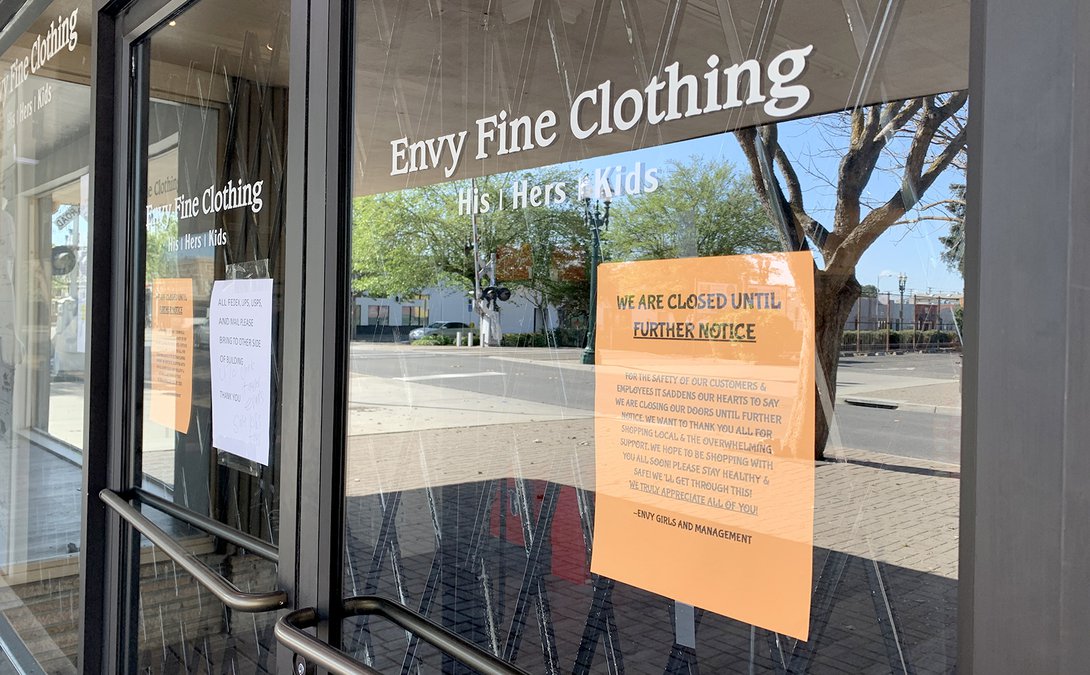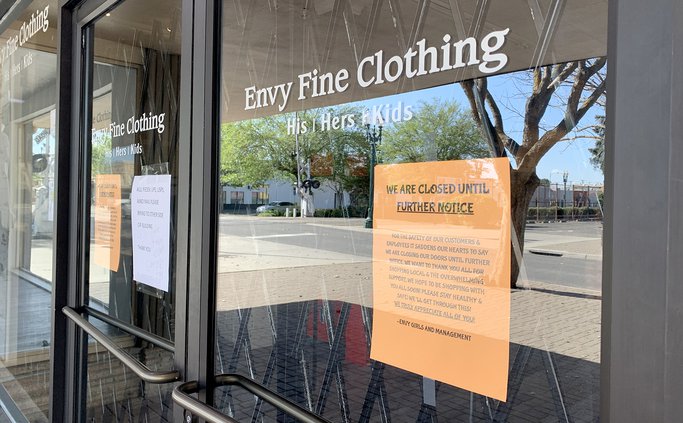With the coronavirus pandemic forcing layoffs and shutdowns for small businesses throughout the country, local business owners are scrambling to apply for aid from the federal, state and now local level in an attempt to survive the crisis.
From neighborhood restaurants to optometry offices, small businesses are feeling the impact of social distancing efforts meant to curb the spread of COVID-19. Whether they’ve completely closed their doors or changed the way they operate to adhere to guidelines, one thing’s for certain: the pandemic is severely affecting them financially.
In order to help those struggling, the U.S. Small Business Administration is offering several avenues for assistance. The U.S. SBA’s COVID-19 Economic Injury Disaster Loan program is a direct loan by the SBA for up to $2 million at a rate of 3.75 percent for small businesses and 2.75 percent for nonprofits. Applicants can get an advance on that Economic Injury Disaster Loan of up to $10,000 within three days of a successful application and any advance money received does not have to be repaid. California businesses have access to this program at SBA.gov.
Businesses can also apply for and obtain loans under the SBA’s Paycheck Protection Program, established under the Coronavirus Aid, Relief, and Economic Security (CARES) Act.
At the state level, California is allocating $50 million to the Small Business Finance Center at California’s IBank to mitigate barriers to capital for those small businesses (1-750 employees) that may not qualify for federal funds (including businesses in low-wealth and immigrant communities). The $50 million allocation will be used to recapitalize the IBank Small Business Loan Guarantee Program, which provides guarantees for loans of up to $50,000 for small business borrowers in declared disaster areas.
Since applying for the SBA’s EIDL loan over 10 days ago, Turlock residents Matt and Kayla Lawson have yet to hear back, they said, and didn’t receive the promised advance of $10,000 within three days of completing their application. The duo is self-employed through their business, MKL Photography. They also looked into applying for PPP assistance, but were encouraged by their bank to explore other lenders.
“...They stated it may be a good idea to apply to other lenders, as there’s a lending cap and only so much money that the federal government is granting through PPP,” the Lawsons said. “It’s been a very uncertain time in our business as we have had to shut all our operations down. The main source of our revenue has been cut off and the loans are nowhere in sight. We keep our faith in the forefront of our thoughts and are grateful for an amazing community to reach out to in these uncertain times.”
As unemployment offices and the SBA are flooded with applications, the Stanislaus County Board of Supervisors took action this week to help buy time for anxious business owners awaiting state and federal help.
During their meeting Tuesday morning, the Board approved $1 million toward a Small Business Relief Program meant to help local businesses retain employees and sustain operations during the pandemic. The program, which utilizes $750,000 of Community Development Funds and $250,000 redirected from the Emergency Domestic Water Well Financial Assistance funding — a 2014 county program that similarly helped those in need unable to access state and federal assistance.
Valley First Credit Union partnered with the County on the program, which will assist small businesses of 50 employees or fewer — with an emphasis on those with 25 or fewer employees.
Board Chairwoman Kristin Olsen asked County staff last week to put together the program after seeing San Diego implement a plan of its own.
“There is so much pain in our community right now as a result of COVID-19. We have seen thousands of people lose their jobs within a day. We have seen so many businesses have to shut their doors — hopefully temporarily — but many of them are fearing whether they will ever be able to reopen, whether they will have the resources to do that,” Olsen said. “This is a really difficult time in our community, and I so appreciate both the feds and the state coming alongside individuals who have lost their jobs and the small businesses who are really struggling right now, and want to make sure that we at the local level are also doing our part.
“This is a small way, but a real and impactful way that we can help small businesses in our community, and hopefully they will be able to reopen their doors because these are people who would all much rather be working and running their businesses.”
The County micro-grant program will provide assistance of up to $10,000 in the form of a forgivable grant to eligible, qualified businesses. Those applying for the grants must have no more than 50 employees, have a current County business permit, provide proof that they’ve operated for at least a year, provide proof of economic hardship due to COVID-19 and not have engaged in any illegal activity.
Those ineligible for the grants include lending and investment institutions, insurance companies, golf courses, racetracks or gambling facilities, nonprofits, home-based businesses and chain stores.
The primary intention of the effort, Supervisor Vito Chiesa explained, is to bridge the small business community to the forthcoming federal stimulus funding.
“This is a statement...and it’s always been intended to be bridging,” Chiesa said. “This is a bridge to get to the $2.2 trillion, the $50 million, but there’s no doubting the need.”
Businesses with fewer than 25 employees will receive 75 percent of the micro-grant funding, while those with 25-50 employees will receive 25 percent. The program will open for applications April 13 through 21. For more information, visit stanworkforce.com.





